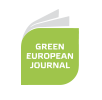Supply chain resilience has become a major challenge for the EU and its member states. The EU has conducted a review of its strategic dependencies and has started to develop new policies. At the same time, the EU is redefining its global role and its relations with various countries and regions including the Indo-Pacific. One of the important actors and like-minded partner in that region is Taiwan. Based on its technological leadership in advanced semiconductors, this democratic, pluralistic, and economically highly successful island should play a core role in Europe’s quest to improve the resilience of its supply chains.
Trade and investment relations between Taiwan and the EU are already well developed. But the calls for a Free Trade Agreement or a Bilateral Investment Agreement (BIA) have grown louder over the past years. The European Parliament has for a long time asked for a scoping exercise for a BIA to find out more common ground for cooperation, but this necessity has not been answered by the responsible services.
That is why the Cluster International of the Greens/EFA group in the European Parliament has commissioned the study:

The authors Prof. Dr. Gottwald (University of Bochum), Prof. Dr. Weil (University of Antwerp) and Prof. Dr. Taube (University of Duisburg) have carried out an analysis of recent legislation, relevant policies and global developments. They explore the potential of making EU supply chains more resilient by complementing the existing web of EU-Taiwan relations with an EU-Taiwan Resilient Supply Chain Agreement (RSCA) and propose concrete steps to make this a reality.
We thank the authors for their excellent work and hope that policy-makers, think tankers, NGOs and business representatives alike can use this study in their work towards closer EU-Taiwan trade and investment ties.
And in case you are interested, here is the link to the Berlin Taiwan Conference I hosted on 5./6. December 2022.


















